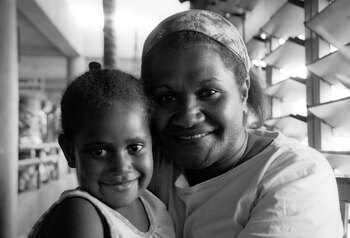[Originally published in the Vanuatu Daily Post’s Weekender Edition.]
Friday’s Daily Post featured a story that would be comical if it weren’t true. Vanuatu Ombudsman Peter Taurakoto released a report recommending the prosecution of 188 public figures for their failure to submit financial reports for the year 2007. Taurakoto also recommended that the Clerk of Parliament be prosecuted, apparently for not performing due diligence with regards to these reports.
According to the Leadership Code Act, ‘leaders’ include Members of Parliament and their political advisors, the Malvatumauri National Council of Chiefs, the VMF Commander, various officers of the provincial and national governments, as well as town clerks and the Ombudsman himself.
Given the astounding number of leaders listed in the Ombudsman’s report, one is led to ask if any leaders actually did submit a statement.

 A quiet revolution is taking place in North Efate.
A quiet revolution is taking place in North Efate.